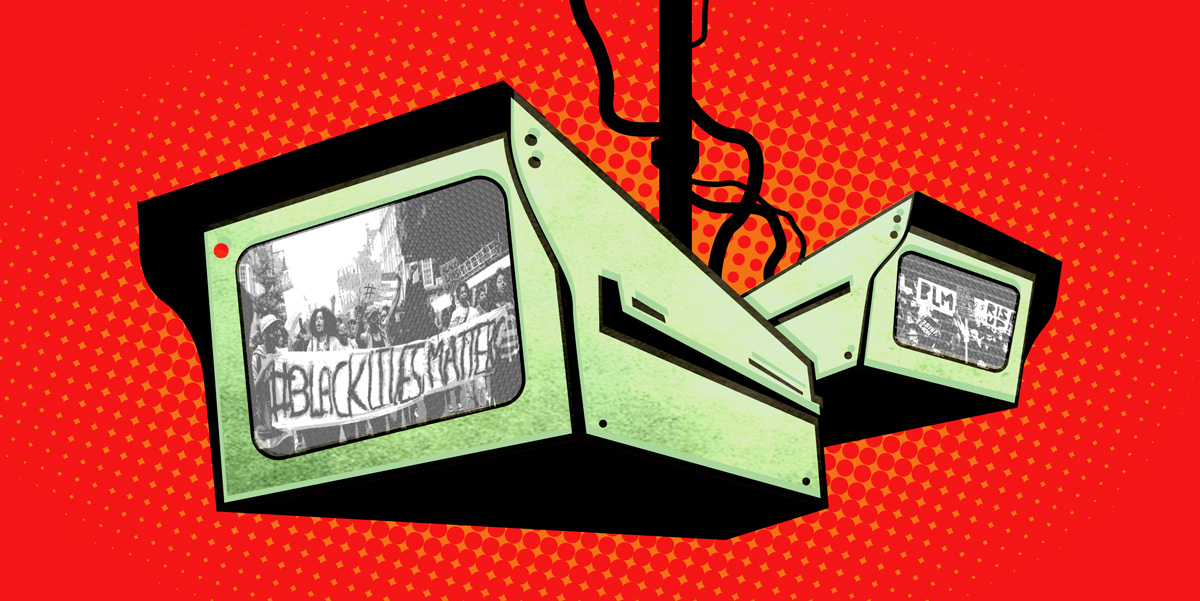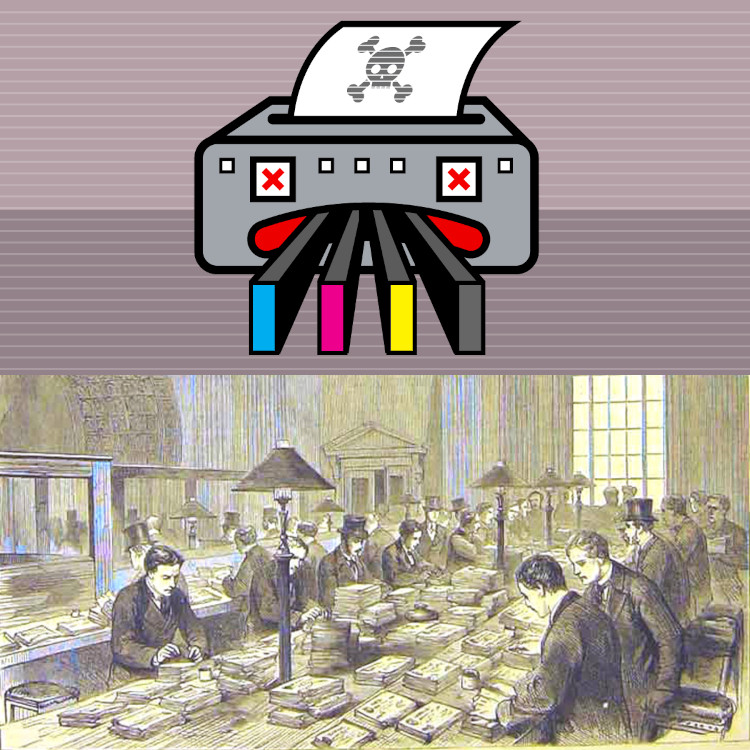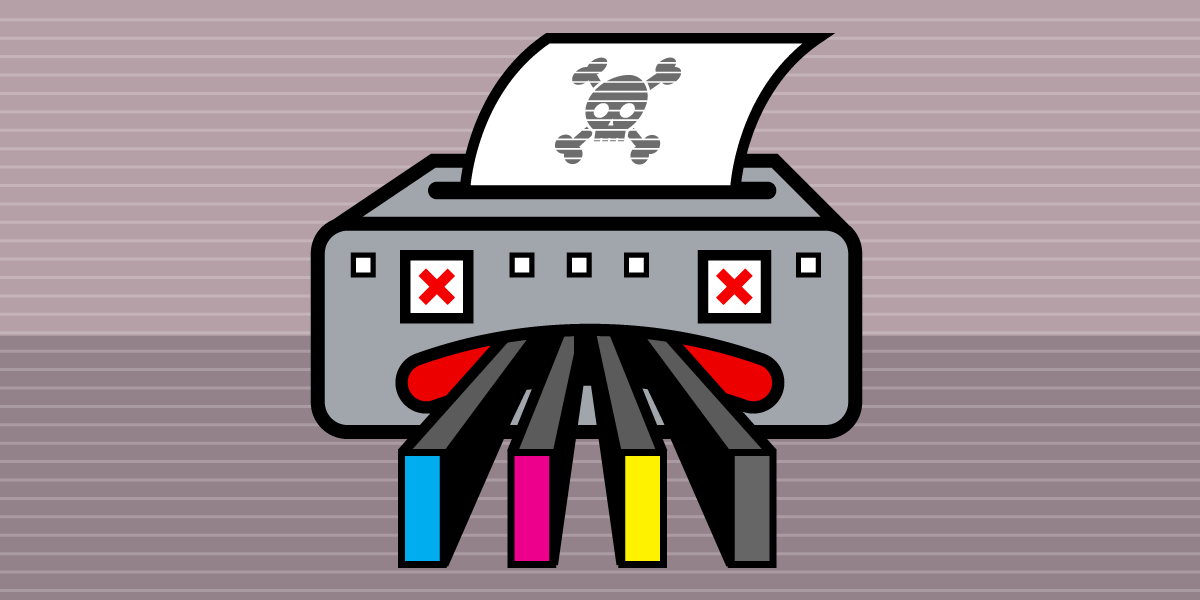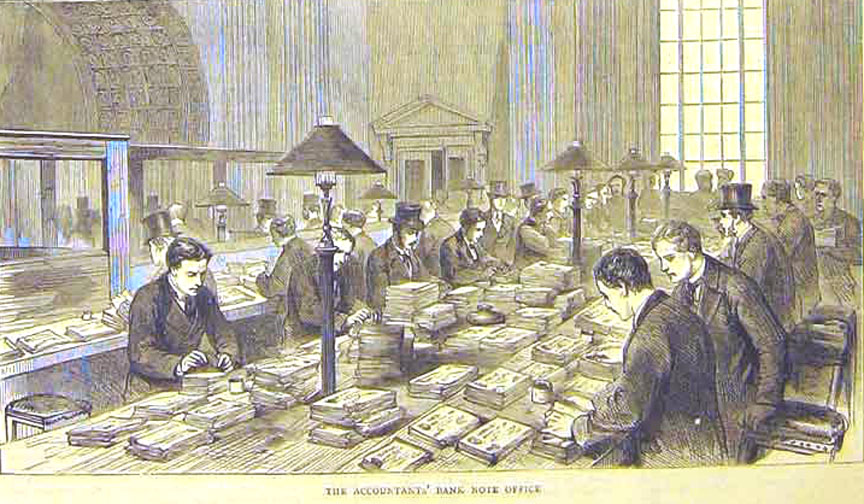
Ring - Amazon's surveillance doorbell division - has 4,000 "partnerships" with US police ("public safety") orgs. The company has lied about how these work for years, but the basic deal is that they give cops free stuff to buzz-market their products.
vice.com/en/article/j5w…
1/
vice.com/en/article/j5w…
1/

Ring tells its customers that they get to choose whether to share the footage from their street-facing cameras with cops, but that's a lie, too. If you say no, the cops still get to look through your camera.
vice.com/en/article/43k…
2/
vice.com/en/article/43k…
2/
That's why cops debase themselves to serve as buzz-marketers for Ring - in exchange, they get an off-the-books, free-to-use, warrantless, city-scale, video surveillance grid.
3/
3/
It's an investment that pays off. Back in July, @EFF documented how the @SFPD was able to commandeer 200 Ring cameras to produce surveillance data on #BLM protesters:
eff.org/deeplinks/2020…
4/
eff.org/deeplinks/2020…
4/
And in a new blockbuster report, EFF's @maassive and @mguariglia document how @LAPDHQ did the same thing, fraudulently using "unusual occurance" protocols to gain access to last summer's BLM protests.
eff.org/deeplinks/2021…
5/
eff.org/deeplinks/2021…
5/
Ring has a terrible track record, kicking off its marketing by sending out deceptive news-bulletins to convince people that they lived in high-crime areas and needed its products:
theatlantic.com/ideas/archive/…
6/
theatlantic.com/ideas/archive/…
6/
They lied about their facial recognition program:
buzzfeednews.com/article/nicole…
A program that included a plan to make "watch lists" of people who'd be tracked from camera to camera:
theintercept.com/2019/11/26/ama…
7/
buzzfeednews.com/article/nicole…
A program that included a plan to make "watch lists" of people who'd be tracked from camera to camera:
theintercept.com/2019/11/26/ama…
7/
Far from keeping its customers safe, Ring exposed them to real harm, leaking their home addresses:
gizmodo.com/ring-s-hidden-…
Allowing third parties to hack their cameras, spy on them, and scream abuse at them:
vice.com/en/article/z3b…
8/
gizmodo.com/ring-s-hidden-…
Allowing third parties to hack their cameras, spy on them, and scream abuse at them:
vice.com/en/article/z3b…
8/
Not just hackers, either! Multiple Ring employees got caught spying on Ring owners and their families, including their children:
vice.com/en/article/y3m…
9/
vice.com/en/article/y3m…
9/
As Maass and Guariglia point out, Ring made some improvements to user privacy over the past year, adding end-to-end encryption. But at the same time, Ring has cemented its relationship with American police forces, leading to far more police requests for Ring owners' footage.
10/
10/
These "requests" start to feel a lot more like coercion, and, as with other coercive law-enforcement requests, "like police 'asking' to search your phone during a traffic stop," they should be bound by strict limits.
11/
11/
EFF proposes four rules for coercive electronic searches:
I. Requests must be specific, targeting a particular time and place where there is reasonable suspicion that crime has happened (rather than general requests)
12/
I. Requests must be specific, targeting a particular time and place where there is reasonable suspicion that crime has happened (rather than general requests)
12/
II. Police must collect and publish statistics about their consent searches of electronic devices, to deter and detect racial profiling
III. Police and reviewing courts must narrowly construe the scope of a person’s consent to search their device.
13/
III. Police and reviewing courts must narrowly construe the scope of a person’s consent to search their device.
13/
IV. Before an officer attempts to acquire footage from a person’s Ring camera, the officer must notify the person of their legal right to refuse.
14/
14/
The public-private surveillance partnership between Ring and the cops epitomizes the paradox of the American privacy debate.
15/
15/
When I talk to military, intelligence and government audiences about surveillance, they say, "Look, Uncle Sam already knows everything about me, but those scumbags in Silicon Valley would sell their mothers for a nickel."
16/
16/
And when I talk to tech audiences, they say, "Google just wants to show me better ads, big deal. But cops and spooks? They're the thickwitted sociopaths who were too stupid to get a job at a tech company. No WAY I want them spying on me."
17/
17/
But the reason companies like Ring are allowed to conduct such indiscriminate surveillance (a one mile walk in DC puts you under the gaze of 13 Ring cameras!) is that governments are wholly dependent on requisitioning their footage.
18/
18/
Rather than warning people about the dangers of Ring cameras - or agitating for ordinances banning them - cops served as street-teams marketing Ring's products. Private surveillance depends on government complicity, and spying governments depend on private surveillance.
eof/
eof/
ETA: The cameras the SFPD accessed were from Avigilon, not Ring
CORRECTION The cameras the SFPD accessed were from Avigilon, not Ring
ETA: If you'd like to read or share this, here's a link to it on pluralistic.net, my blog, which is surveillance-, ad-, and tracker-free.
pluralistic.net/2021/02/16/rin…
pluralistic.net/2021/02/16/rin…
• • •
Missing some Tweet in this thread? You can try to
force a refresh










